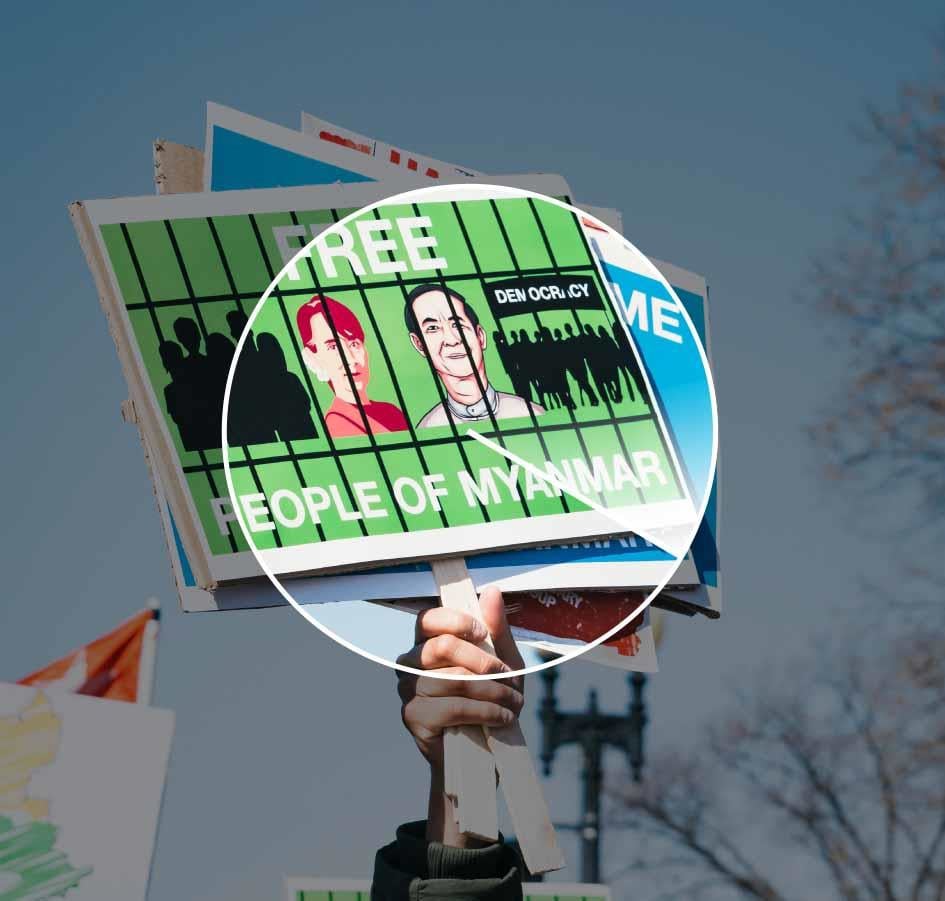5 Companies’ business partnerships with the armed forces in Myanmar

On 1 February 2021, the armed forces in Myanmar staged a coup d’état. Hundreds of thousands of civilians have protested against the coup by means of boycotts, strikes and demonstrations nationwide. This resistance has been met with violence by the armed forces, and thousands of people have been killed since the generals took power.
In certain areas, opposition to the regime has evolved into armed conflict. For many years even before the coup, Myanmar’s armed forces committed acts of atrocity against the civilian population. Year after year, the UN High Commissioner for Human rights has reported on the appalling situation facing the Muslim Rohingya community, which the armed forces continue to persecute. At present, the International Court of Justice (ICJ) is considering several cases relating to violations of the Genocide Convention, while the International Criminal Court (ICC) is considering cases relating to crimes against humanity.
The UN High Commissioner for Human Rights has repeatedly called on businesses with operations in Myanmar not to cooperate with companies controlled by the armed forces and to avoid business operations that help to boost the armed forces’ financial strength. Both the EU and Norway have imposed sanctions on several military-controlled companies because the revenues from them increase the armed forces’ capacity to perpetrate abuses.
The regime controls swathes of the country’s economy through a network of companies. In 2019, the Independent International Fact-Finding Mission on Myanmar published several reports on the armed forces’ financial interests. The reports identified interests associated with the two military-owned conglomerates: Myanmar Economic Corporation (MEC) and Myanma Economic Holdings Limited (MEHL). MEC is owned and controlled by the Ministry of Defence, while MEHL is owned and operated by former generals and military units, and is strongly influenced by Myanmar’s top military leadership.
In 2022, the Council continued to identify the business activities that companies in the GPFGs portfolio have in the country. This review showed that many companies have halted ongoing projects, pulled their businesses out of the country or announced their intention to do so. The Council is communicating with several companies to obtain more information about what they are doing to avoid their operations contributing to abuses for which the armed forces are responsible. Relatively few companies have carried out thorough due diligence assessments, and in the majority of cases, the companies would almost certainly not have sufficient influence to prevent new abuses while the Myanmar military remains in power. In the Council’s view, companies in this situation have no other option than to withdraw from the country to avoid contributing to norm violations. Due to the particular risk of contributing to serious norm violations in areas of war and conflict, the Council takes the position that companies with operations in such areas must demonstrate particular prudence and due diligence.
In 2022, the Council issued three recommendations to exclude companies with operations in Myanmar, with reference to the war and conflict criterion. Two companies have been placed under observation since 2021. In particular, the Council has assessed whether the companies concerned have a business partnership with military-controlled entities, whether this partnership could have a strategic impact, and the extent to which the companies’ business activities in Myanmar contribute to boost the armed forces’ financial capacity. The Council’s recommendation concerning the Thai oil company PTT PLC and its subsidiary PTTOR, which was published in 2022, is based both on PTTOR’s business partnership with MEC and the oil and gas revenues that PTT generates for the regime. Since revenues from oil and gas production in Myanmar constitute the regime’s largest source of income, it is this contribution that the Council considers to be the most important element in PTT’s contribution to the serious abuses for which the armed forces are responsible.